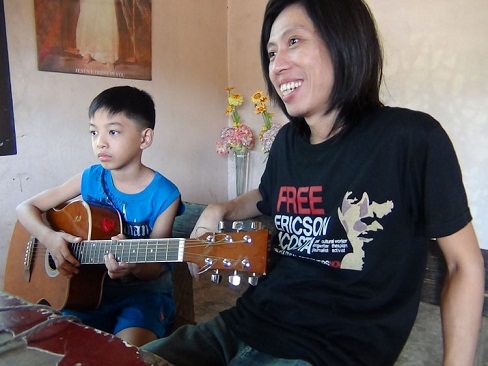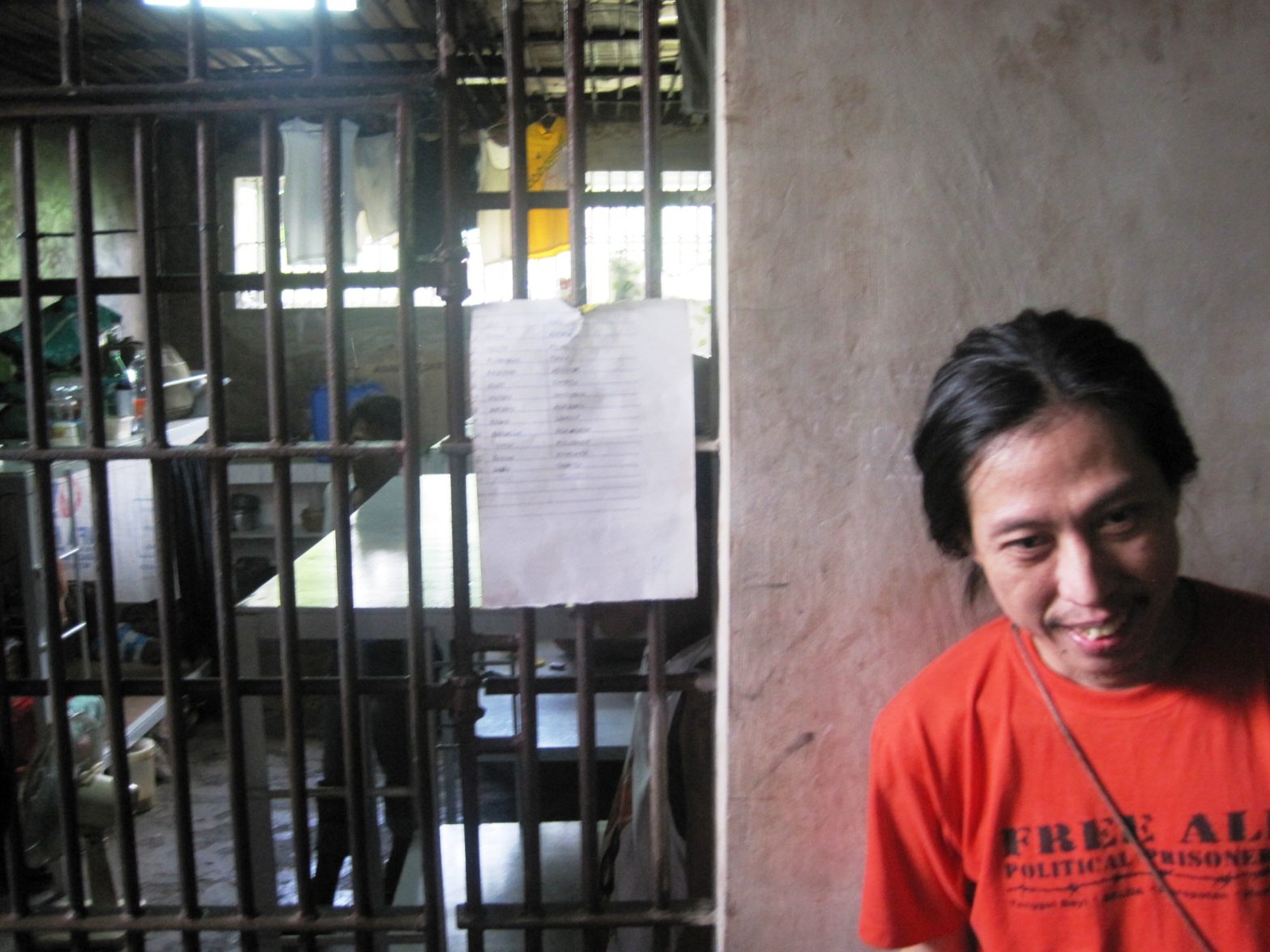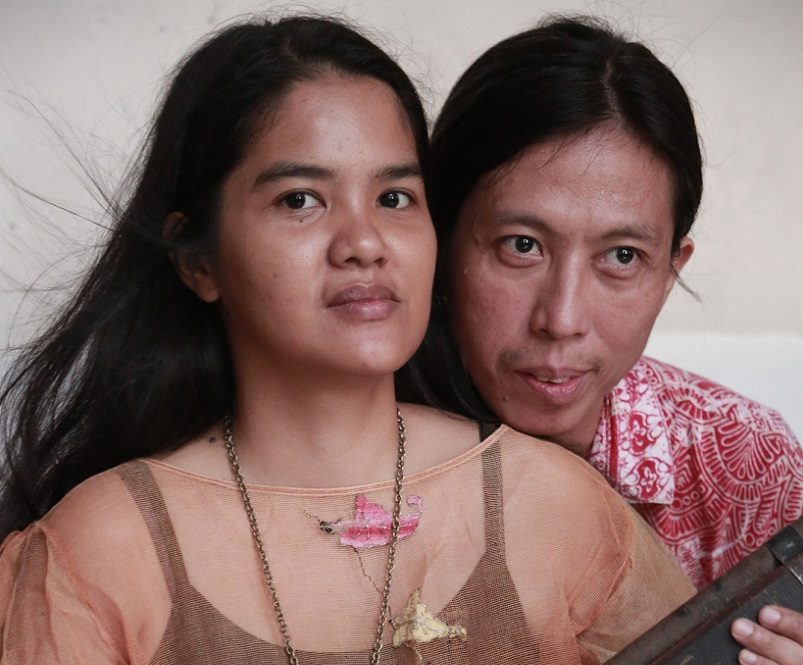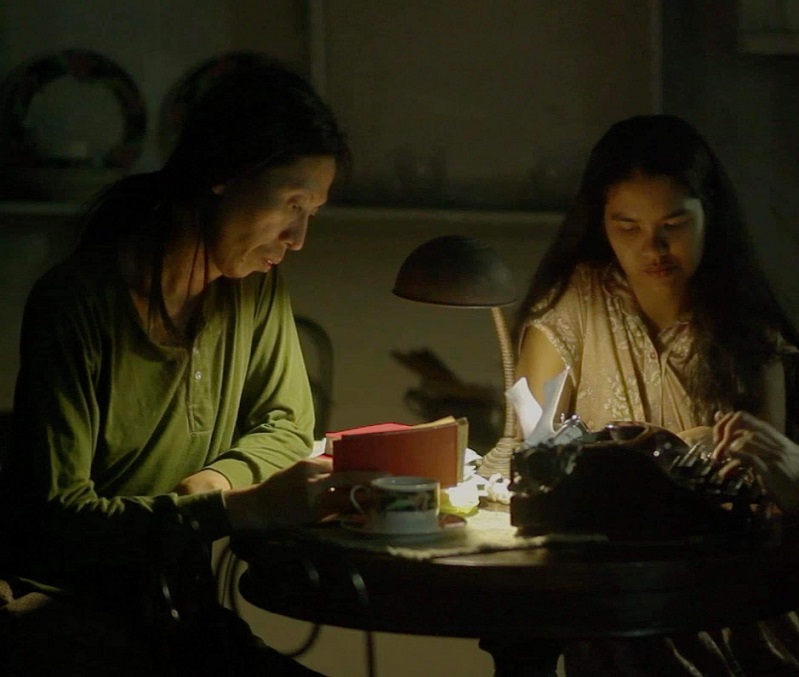By PABLO A. TARIMAN
“IT is a long arduous wait for justice and freedom.”
Thus says former UP Collegian editor Ericson Acosta describing his one year and eight months in the Calbayog sub-provincial jail in Samar Island. For the record, he is one of the more than 354 political prisoners detained under the new Aquino administration as of August 2011.
The world-wide observance of International Day for Imprisoned Writers initiated in Manila by the Philippine Center of the International PEN (Poets, Playwrights, Essayists, Novelists) highlighted the cases of Acosta along with those of Regina Martínez, a Mexican journalist (murdered); Shiva Nazar Ahari, journalist, human rights activist and blogger (Iran); Muharrem Erbey, a human rights lawyer and writer from Turkey; Eskinder Nega, a journalist and blogger (Ethiopia).
Acosta was arrested without warrant on February 13, 2011 by: members of the AFP’s 34th IB led by 2nd Lt. Jacob Madarang while he was doing research on the human rights situation in Samar province. He was held for three days without charges and was subjected to continuous tactical interrogation by the military. Three days after arrest in which no charges was filed, he was finally charged with illegal possession of explosives to justify his detention in the Calbayog sub-provincial jail.
Visited in his Calbayog detention jail, Acosta describes his life in jail since February 2011.
He says his day starts with lining up for the day’s ration of uncooked rice and ends with trying to finish — usually with agonizing difficulty — a blog entry, a statement or a poem. The toughest part of being in prison, he avers, is being deprived of liberty and being away from family and from the peasant communities he has long considered family. “I always try to keep busy by initiating educational discussions with co-prisoners and even doing literacy classes inside the cell. I read all the books with me listen to music on radio, play chess in between swatting flies and mosquitoes.”
The latest book in his detention cell is “Juan Ponce Enrile: A Memoir.”
He has spent his 39th and 40th birthdays in jail and is about to spend his second Christmas in jail this year.
The months come and go and he doesn’t know which ones are the toughest.
He relates: “Each month I think has its own episode of anticipating a scheduled visit that does not happen; of being threatened by military guards in extremely trashy language; of feeling absolutely helpless in the face of personal health issues given the continuing refusal of the authorities to bring me to the nearest medical facilities for a long overdue checkup.”
Acosta is not the kind who celebrates birthdays but when he was imprisoned, the simple joys of seeing his parents and his only son, Emmanuel sharing modest food, was to him a very touching surprise. It has certainly brought back memories of youth. He spent his 40th birthday last May with a small group of local activists and shared pancit.
It was in that birthday that he felt his health was deteriorating. “It was hard trying not to feel bothered. Gradually, you feel the gloom of lost youth.”
His imprisonment now close to two years, Acosta says his 20 months in this isolated jail in Calbayog, Samar has been a test of resilience. “It has been a concrete lesson on political repression and a first hand reality of the dreadful state of the country’s justice system. But the experience could only make me grow firmer in my social and political beliefs and my desire to be one with the masses.”
Acosta is one of the subjects of the documentary called “Chained Metaphors” which is all about imprisoned artists. He was also named finalist of the Imprisoned Artist Prize at the Freedom to Create Awards Festival in Cape Town, South Africa along with two other artists from Tibet and Myanmar.
The finalists in the Artist in Prison category was chosen out of more than 2000 nominees from 145 countries by a select jury that included actress and filmmaker Daryl Hannah, novelist Salman Rushdie and ballet icon Mikhail Baryshnikov, among others.
The case of Acosta was taken up in the Philippine writers’ forum in a panel of distinguished writers from the Philippine PEN Writers in Prison Committee, including Dr. Bienvenido Lumbera, National Artist for Literature and National Chair of the Philippine Center of the International PEN; and PEN Board Members, critic and columnist Elmer Ordonez and fictionist Jun Cruz Reyes.
Meanwhile, the cultural sector led by National Artists for Literature Bien Lumbera, actors Pen Medina and Nanding Josef, filmmaker Carlitos Siguion Reyna and UP Dean of Mass Communications Rolando Tolentino has rallied behind Ericson in a statement signed by signatories from the cultural sector, media and academe denouncing the illegal arrest of the former UP Collegian editor.
“Ericson deserves to be released for his continuing incarceration is a grievous loss to the growth of a truly democratic art and culture of the Filipino people,”Lumbera said.
For now, Acosta relishes the joy of seeing his visiting son, Emmanuel, playing the guitar with him and singing his own compositions he wrote in jail “Like any father in this generally unhappy condition, ” he concludes, “watching my son grow up and bringing me school medals and citations are pure joy.”




